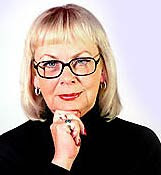Don't look for answers -- look for questions
Sometimes we look to the past and sometimes we look to the future.
Some people say that all that matters is now.
Scholars write that only this moment is guaranteed.
Philosophers ring out the cliche “Be Here Now.”
However, how we choose to use now is really up to only one person and that is for you, you and it is for me, me.
I love to travel back in time looking at my memories and learning from the good, the bad and the ugly. I love to travel to the future imagining what could be our possibilities. Both traveling back and forward in time help me heal my wounds and to celebrate my healing and my life.
All answers cannot be answered today. They cannot always be answered by examining the past. Reality suggests that the best questions actually don’t have a definitive answer. The best questions are the ones that create new questions and to me that indicates intellectual and spiritual growth in progress.
As we struggle to define ourselves, we are actually in a process of healing. As long as we question and continue to discover the different nuances of life and meaning, we are being our own creator. The messages from others both supportive or negative when analyzed allow us to define what is our own personal truth. Other people are not our mirrors. Other people do not define us. It is the way that we think other people react to us that is our mirror because it reveals our own inner dynamics of thinking, perceiving, healing, growth and change.
When somebody says something to you that makes you feel either good or bad, is there a little voice in your head that says that is true or that is false? What they say literally may mean something totally different than what you are perceiving and think that you are understanding. The search for self is a complicated mosaic that constantly is changing and transmuting the self as we walk along the path of life.
There is no ultimate definition of who we are. There is only the shifting perceptions of self that change over time and through events and circumstances. However, there is only one person who has the power ultimately to define self and that is you.
Bless those who challenge our perceptions about self and reality because in those who challenge our truth allow us to uncover new truths and create new realities and ultimately if we are persistent to create the person that brings us contentment and joy. Bless those who love us because it gives us strength to carry on the task of becoming more fully human. Bless those who push our buttons and stress us, because they show us where we are vulnerable and wounded and need to heal. And bless us as we do this for others. While often it may feel that we are walking the path alone, we are not. Always when we need it most, angels in the form of other people show up to light the path when it becomes dark. When we feel that life is a nightmare, we always have the option to wake up and face the challenge to expand our own truths and our own possibilities.
And bless me for not having all the answers, because if I did I would be out of here. And I have to admit I really like where I am.
